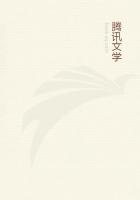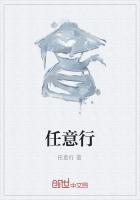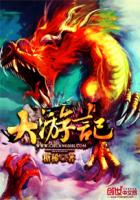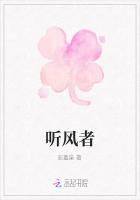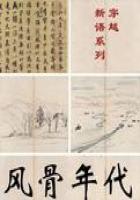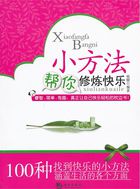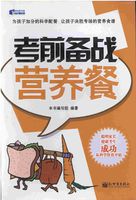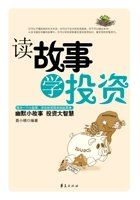From a state of stupor he would return to it--SO THIS WAS A HURRICANE. Then he would go off into another stupor.
The height of the hurricane endured from eleven at night till three in the morning, and it was at eleven that the tree in which clung Mapuhi and his women snapped off. Mapuhi rose to the surface of the lagoon, still clutching his daughter Ngakura. Only a South Sea islander could have lived in such a driving smother. The pandanus tree, to which he attached himself, turned over and over in the froth and churn; and it was only by holding on at times and waiting, and at other times shifting his grips rapidly, that he was able to get his head and Ngakura's to the surface at intervals sufficiently near together to keep the breath in them. But the air was mostly water, what with flying spray and sheeted rain that poured along at right angles to the perpendicular.
It was ten miles across the lagoon to the farther ring of sand. Here, tossing tree trunks, timbers, wrecks of cutters, and wreckage of houses, killed nine out of ten of the miserable beings who survived the passage of the lagoon.
Half-drowned, exhausted, they were hurled into this mad mortar of the elements and battered into formless flesh. But Mapuhi was fortunate. His chance was the one in ten; it fell to him by the freakage of fate. He emerged upon the sand, bleeding from a score of wounds.
Ngakura's left arm was broken; the fingers of her right hand were crushed; and cheek and forehead were laid open to the bone. He clutched a tree that yet stood, and clung on, holding the girl and sobbing for air, while the waters of the lagoon washed by knee-high and at times waist-high.
At three in the morning the backbone of the hurricane broke. By five no more than a stiff breeze was blowing. And by six it was dead calm and the sun was shining. The sea had gone down. On the yet restless edge of the lagoon, Mapuhi saw the broken bodies of those that had failed in the landing. Undoubtedly Tefara and Nauri were among them. He went along the beach examining them, and came upon his wife, lying half in and half out of the water. He sat down and wept, making harsh animal noises after the manner of primitive grief. Then she stirred uneasily, and groaned. He looked more closely. Not only was she alive, but she was uninjured. She was merely sleeping. Hers also had been the one chance in ten.
Of the twelve hundred alive the night before but three hundred remained. The mormon missionary and a gendarme made the census. The lagoon was cluttered with corpses. Not a house nor a hut was standing. In the whole atoll not two stones remained one upon another. One in fifty of the cocoanut palms still stood, and they were wrecks, while on not one of them remained a single nut.
There was no fresh water. The shallow wells that caught the surface seepage of the rain were filled with salt. Out of the lagoon a few soaked bags of flour were recovered. The survivors cut the hearts out of the fallen cocoanut trees and ate them. Here and there they crawled into tiny hutches, made by hollowing out the sand and covering over with fragments of metal roofing. The missionary made a crude still, but he could not distill water for three hundred persons. By the end of the second day, Raoul, taking a bath in the lagoon, discovered that his thirst was somewhat relieved. He cried out the news, and thereupon three hundred men, women, and children could have been seen, standing up to their necks in the lagoon and trying to drink water in through their skins. Their dead floated about them, or were stepped upon where they still lay upon the bottom. On the third day the people buried their dead and sat down to wait for the rescue steamers.
In the meantime, Nauri, torn from her family by the hurricane, had been swept away on an adventure of her own. Clinging to a rough plank that wounded and bruised her and that filled her body with splinters, she was thrown clear over the atoll and carried away to sea. Here, under the amazing buffets of mountains of water, she lost her plank. She was an old woman nearly sixty; but she was Paumotan-born, and she had never been out of sight of the sea in her life. Swimming in the darkness, strangling, suffocating, fighting for air, she was struck a heavy blow on the shoulder by a cocoanut. On the instant her plan was formed, and she seized the nut. In the next hour she captured seven more.
Tied together, they formed a life-buoy that preserved her life while at the same time it threatened to pound her to a jelly. She was a fat woman, and she bruised easily; but she had had experience of hurricanes, and while she prayed to her shark god for protection from sharks, she waited for the wind to break.
But at three o'clock she was in such a stupor that she did not know. Nor did she know at six o'clock when the dead calm settled down. She was shocked into consciousness when she was thrown upon the sand. She dug in with raw and bleeding hands and feet and clawed against the backwash until she was beyond the reach of the waves.
She knew where she was. This land could be no other than the tiny islet of Takokota. It had no lagoon. No one lived upon it.
Hikueru was fifteen miles away. She could not see Hikueru, but she knew that it lay to the south. The days went by, and she lived on the cocoanuts that had kept her afloat. They supplied her with drinking water and with food. But she did not drink all she wanted, nor eat all she wanted. Rescue was problematical. She saw the smoke of the rescue steamers on the horizon, but what steamer could be expected to come to lonely, uninhabited Takokota?
From the first she was tormented by corpses. The sea persisted in flinging them upon her bit of sand, and she persisted, until her strength failed, in thrusting them back into the sea where the sharks tore at them and devoured them. When her strength failed, the bodies festooned her beach with ghastly horror, and she withdrew from them as far as she could, which was not far.

